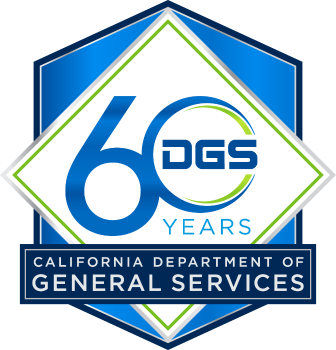COLLECTING NON-EMPLOYEE ACCOUNTS RECEIVABLE - 8293.1
(Revised and renumbered from 8776.6)
Agencies/department will follow the collection procedures and guidelines for amounts owed to the state from non-employees. These procedures are in accordance with the Accounts Receivable Management Act as provided in Government Code sections 16580-16586. Some agencies/departments may find it necessary to expand these procedures to fit their particular circumstances.
Locating Debtor
When the address of the debtor is unknown, agencies/departments will attempt to obtain a current address by using any of the following methods:
- Use the internet and/or a data research service.
- Perform a cost-benefit analysis to determine if procuring services to locate debtors would be cost-beneficial.
- Request the debtor’s address from the Department of Motor Vehicles by completing a Gov’t Agency Request for Driver License/Identification Record Information form, INF 254. For this alternative, the debtor’s date of birth or driver’s license/identification number is required.
Collection Letters
Three documented letters should be made to collect on non-employee delinquent accounts. However, agencies/departments have the option of making one documented letter before proceeding to the discharge of accountability process for non-employee accounts receivable of $25 and under. This threshold applies to the total amount owed by the debtor, not to each invoice. An agency/department will send a sequence of three collection letters at a minimum of 30-day intervals.
- If a reply or payment is not received within 30 days after sending the first letter, the department will send a second letter. This follow-up letter will reference the original request for payment letter and will be stated in a stronger tone.
- If a response is still not received from the debtor, a third letter will be sent 30 days later. This last letter will include references to prior letters and will state what further actions, including collection fees, may be taken in the collection process.
Collection Fee
Government Code section 16583.1 allows agencies/departments to charge a reasonable fee, not to exceed the actual costs incurred by the department, to recover the department’s collection costs on past due ARs. If an agency/department plans to recover costs pursuant to this section, departments should consider actual costs incurred, including, but not limited to, staff time to send out collection letters, postage, equipment costs, and contingency fees for private collectors. The fee should be recorded in revenue Account 4171000, Cost Recoveries-Delinquent Receivables (Legacy source code 162100).
Collection Actions Review
If the three collection letters are unsuccessful, agencies/departments will prepare a cost benefit analysis to determine the most efficient and effective collection method by initiating one or more of the following actions:
- Offset Procedures—an offset, is the interception and collection from amounts owed by other state departments to the debtor. For more offset information, see SAM section 8293.4.
- Court Settlements—there may be instances where it would be cost-effective for departments to seek court judgments against debtors. Agencies/departments should consider the possibility of filing an action in small claims courts. For larger sums, department counsel should be consulted for advice.
Collection Agencies
Agencies/departments may consider contracting with another department that has a collection unit or with an outside collection agency.
- The State Contracting Manual, the Public Contract Code section applicable to contracts for services, and Government Code section 19130 should be reviewed when a department is considering contracting with a collection agency. Any contract made with a collection agency must specify that all funds collected on behalf of an agency/department will be remitted to that department. The collection agency can then be paid in one of several ways for its services - by a set fee per collection, on an hourly basis, or on a percentage basis, in arrears, based on services rendered.
- Prior to assigning the debt to a collection agency, agency/departments are required by law to notify the debtor in writing at the address of record that the alleged AR debt will be turned over for private collection unless the debt is paid or appealed within a specified time period.
- Sale of ARs—Agencies/departments are authorized to sell ARs to private persons or entities. Agencies/departments will record the net income from the sale in their accounting records. Specific accounting entries for the sale of ARs are detailed in SAM section 10536.
- Prior to selling the debt, agencies/departments are required by law to notify the debtor in writing, at the address of record, that the alleged AR debt will be turned over for private collection unless the debt is paid or appealed within a specified time period.
Agencies/departments will select the collection actions that are likely to generate the highest net income and do not compromise future state income collections. In addition, agencies/departments should consult with the Franchise Tax Board or any other state agency/department that has successfully established an effective AR collection system to develop methods for improving their collection rate.
Revisions
No Revisions for this item.

